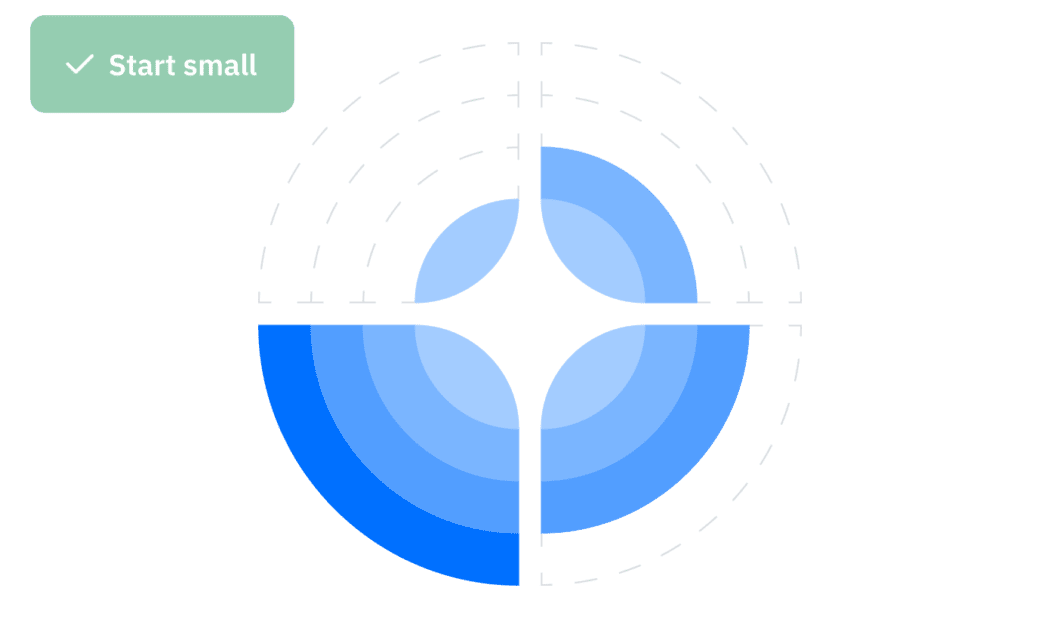How to develop new skills? Examples, methods and tips
During this article we explore practical strategies for skill development, offering insights and guidance to help you embark on your journey of personal and professional growth.

As more organizations turn to skills-based organizational structures, the importance of skills development is increasing. This means your employees must know how to develop a skill, as well as learn new ones. You’ll also need a way to track employee skills development throughout your organization.
In this article, we’ll take a look at how to do just that. We’ll also touch on the benefits of learning new skills, methods for upskilling and reskilling, and how AG5 can help you lay the foundation on which to build a skills-based organization.
What are skills?Copied
A skill is an ability to perform a specific task or activity at a high level of proficiency. [1] You can learn more about the different types of skills and their various types in our blog post on the subject. Learning and mastering a new skill involves more than a theoretical understanding of a subject. Instead, acquiring new skills requires practice, training, and experience.
The benefits of learning a new skillCopied
Research from Gallup [2] shows that employees who are continuously learning new skills yield benefits for both themselves and their organizations.
Employees who learn new skills are:
- More productive
- More engaged
- Higher performing
- More likely to stay with their company
Meanwhile, organizations that place a focus on employee skill development are:
- More profitable
- Enjoying higher retention rates
- More agile
- Offering higher-quality work or products
- Better at customer service
Methods to learn new skillsCopied
In a professional environment, new skills are often learned through a combination of methods. Let’s take a look, so you can be sure your employees have opportunities to take advantage of them.
On-the-job training
On-the-job training is especially advantageous in industries like manufacturing or construction, where employees are hands-on with – or can easily and objectively observe – daily routines and tasks. It’s also the easiest method of training for organizations to implement, as it can be seamlessly integrated with day-to-day activities.
Cross-training programs
Cross-training involves teaching employees new skills that fall outside the boundaries of their primary role. This not only broadens their skills sets – which falls under the umbrella of many upskilling or reskilling initiatives – it also improves their (and their organizations’) agility.
Setting up cross-training programs typically requires the organization to implement a structured training plan. They can also be supplemented through on-the-job training or job rotation, with employees shadowing other employees in different departments or on different teams.
Workshops and seminars
Workshops and seminars provide focused opportunities for skill development. These sessions are often led by subject-matter experts, who can be internal employees or external speakers.
Workshops and seminars can be conducted in-person or virtually, making them accessible to employees in different locations. However, you’ll need to be strategic in choosing who attends them, as they may not be relevant to everyone.
5 tips for learning and developing skillsCopied
Learning new skills – and developing existing ones – requires effort from both employees and their organizations. Here, we can look to Deloitte’s report on building a skills-based organization [3], which offers a wealth of insight into the steps you can take to cultivate a professional environment where employees are continuously learning and improving.
Start small
Encouraging employees to learn new skills isn’t an overnight change; it’s a gradual cultural shift that involves implementing new ways of working, and evolved methods of looking at and analyzing roles and responsibilities.
For this to work, you’ll have to start small, initially focusing only on the new skills your employees need to learn, then slowly broadening your outlook as your skills-based organization develops.
Giving and receiving feedback
Employees who are learning or developing skills must be able to receive and give feedback as they progress. These can be formal sessions, such as managerial evaluations or surveys, or informal, through peers or daily check-ins.
Feedback helps employees understand their strengths and areas for improvement, as well as better understand how their skills development is progressing. It also provides your organization with the ability to collect data it can use in its skill development strategy.
Ask questions
When choosing skills to learn or develop, it is important to ask “why” or “how” questions. These could include:
- Why is this skill necessary for my current role or responsibilities?
- Why is this skill relevant to the goals and objectives of the organization?
- Why is this skill in demand in the industry or market?
- How will acquiring this skill benefit my professional growth and career advancement?
Answering “why” or “how” questions tends to show the value – or a lack thereof – of making a certain decision. This will help ensure that the skills you are focusing on developing are aligned with both individual and organizational goals.
Standardize skills-based practices and language
The way employees learn – as well as the language they use when doing so – should be standardized throughout your entire organization. This helps ensure consistency and transparency for everyone involved in your skills development strategy.
It also helps your organization become more cohesive, with individuals, teams, and departments that are better aligned and more communicative. This can go a long way toward preventing miscommunications that can result in costly production delays or non-compliance with regulatory standards.
Create a ‘skills hub’
A centralized hub for skills development is crucial when employees are learning or developing skills. A skills hub typically takes the form of a platform on which skills development data can be easily accessed, tracked, and analyzed.
In the early stages of a skills management strategy, a skills hub might take the form of an Excel-based skills matrix. Once that has been fully implemented, many organizations move on to skills management software, which is better-suited to larger operations that work across multiple departments and sites.
How long does it take to learn a new skill?Copied
There is no objective answer for how long it will take to learn a new skill. It is instead hugely dependent on the skill being learned, the individual learning it, and the organization’s approach to skill development.
Perhaps obviously, simpler skills may take less time to learn than those that are more complex. Regardless, the key to learning new skills is consistency and transparency. This ensures that individuals, teams, and departments are continuously working toward the same goals as they learn new skills.
Develop your teams’ skills with AG5Copied
AG5’s skills management software acts as a centralized skills hub on which you can store, track, and analyze all skills-related data across the organization.
With AG5, you can:
- Update skills data and training results directly from the work floor
- Build project-based teams based on the expertise and experience you need
- Receive or send notifications for expiring certifications
- Identify the most qualified replacements for staff members off sick
- Assign the most qualified personnel to skilled tasks such as retooling a production line
- Replicate organizational structures and the relationships between staff members and qualifications
- And much more
Want to see how this would work in practice? Schedule a free, live, 15-minute demo for a custom look at how AG5 can help you lay the foundation for a skills-based organization
Sources Copied
- Change view: Table
-
APA
| # | Source title | Description | Publication | Retrieved | Source URL |
|---|---|---|---|---|---|
| 1 | What is Skill? An Inter-Disciplinary Synthesis | Francis Green | - | May 24, 2024 | http://llakes.org/wp-content/u.. |
| 2 | Improve Work Performance With a Focus on Employee Development. | Gallup | - | May 24, 2024 | https://www.gallup.com/workpla.. |
| 3 | The skills-based organization: A new operating model for work and the workforce. | Deloitte | - | May 24, 2024 | https://www2.deloitte.com/us/e.. |
Author Copied
Revisions Copied
Rewrote existing contest, added “How long does it take to learn new skills” section, added new tips for learning skills, added sources.
Written by: Rick van Echtelt
Copy edited by: Adam Kohut

